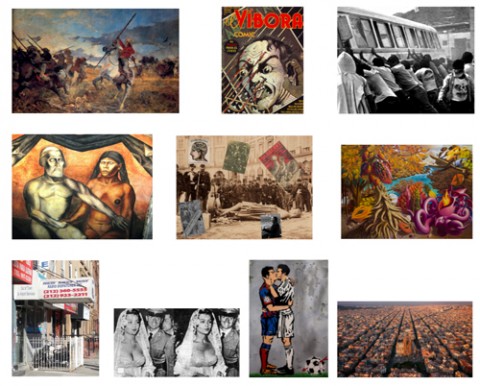Courses
Our language courses comprise Elementary Spanish I and II (UN1101-1102), Intermediate Spanish I and II (UN2101-2102), and Spanish for Heritage Speakers (UN2108).
Although, depending on previous language experience, students may place into the sequence at different stages (see placement instructions), the four courses are conceived as an integrated continuum leading students to the intermediate-high proficiency level.
The small class size (15) affords students ample opportunity for class participation, and allows instructors to pay careful attention to student performance, thus maximizing development in all four language skills—listening, reading, speaking, and writing—while building complementary skills of mediation and interaction. Spanish is the language of instruction from the earliest levels.
For students who are native or heritage speakers of Spanish, our language program has designed a course of Spanish for Heritage Speakers who score between 450 and 625 in the placement exam. This course fulfills the Language Requirement for Class of 2019.
All of the language courses may be taken either through our department, or through Columbia's Department of Latin American and Iberian Cultures.
For further information, please see Language Requirement, Spanish at Barnard, and Language Study.
This sequence links the language program to the upper-level literature and culture program and the Major, and consists of three courses:
SPAN W3300 – Advanced Language through Content (specific content varies by section)
SPAN W3349 – Hispanic Cultures I (Islamic Spain through the Colonial Period)
SPAN W3350 – Hispanic Cultures II (Enlightenment through the Present)
All three courses are entirely conducted in Spanish.
In the first content-based language course, attention to topics in Spanish and Latin American studies shares protagonism with the explicit study of selected grammar points of continued difficulty for post-intermediate students. The course also emphasizes the development of critical skills for textual analysis and the establishment of a methodological foundation for literary and cultural study.
The second two courses, both transatlantic in focus, give a broad overview of literary texts and cultural artifacts in their historical context, and provide students with basic knowledge on which to draw in upper-level Major courses. While these do not include specific language instruction, attention is paid to all language skills, especially writing.
Like the language courses, the bridge and introductory levels are taught in small sections, allowing for maximum participation and instructor attention.
W3300 is taken after completion of the language requirement before W3349 and W3350, which can be taken simultaneously or in inverse order.
All bridge and introductory courses may be taken either in our department, or at Columbia's Department of Latin American and Iberian Cultures.
All courses numbered 3000 or above (with the exception of W3300, 3349, and 3350) are upper-level courses. They may focus on the complex study of literary periods, movements, and authors, as well as other forms of cultural production (mass and folk culture, film and visual media, etc.) from Spain and Latin America. Many of these are organized around themes and problems rather than geography or chronological period. Advanced courses may also focus on issues in Spanish language or linguistics.
All upper-level courses are entirely conducted in Spanish, to further develop students' language proficiency to levels appropriate for advanced study abroad or in graduate school. To this end, enrollment is limited to a maximum of 15 students.
Unless a specific arrangement is made with the Major Advisor or instructor (a highly unusual circumstance), students should have completed W3300 and at least one of W3349 and 3350, before registering for an upper-level course.
The highest upper-level course is the Senior Seminar, which should be taken in the Fall of the senior year; in addition to exploring a topic, this seminar trains students on research methods and resources, and requires the production of a significant research paper (satisfying thesis requirements at Barnard).
All upper-level courses taken in our department or Columbia's Department of Latin American and Iberian Cultures count for the Major, Major with Specialization, and Minor.
Recognizing that the Department of Spanish and Latin American Cultures's structure of prerequisites may make it difficult for many non-majors to enroll in our courses, we offer a number of courses in English, with original Hispanic texts in translation. These courses do not count for the Major or Major with Specialization, except in selected cases and by advisor approval, as "outside electives". They do not count toward the Minor. Enrollment is generally not limited. Courses in English may be housed in Spanish and Latin American Cultures, or taught by our faculty through Comparative Literature, Africana Studies, Women's Studies, or other programs.

Note
Please do not rely on the Barnard online catalogue for the section number and time schedule of courses on any given semester. While the catalogue contains course descriptions, the Directory of Classes contains the most up-to-date section information.